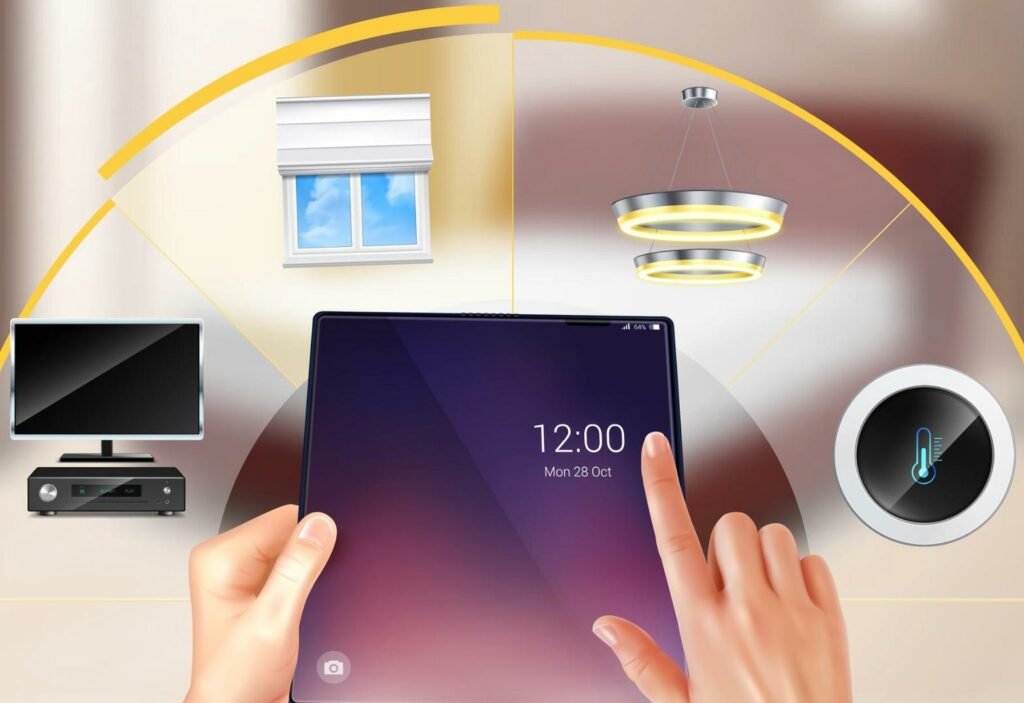People of all ages and stages of life have quickly embraced home automation technology, whether it’s a digital voice assistant, a doorbell that records the arrivals and departures of its residents, or a thermostat that can be easily controlled remotely via a smartphone. Everyone has some cutting-edge technology in their home these days.
Let’s pause for a moment to notice an odd connection between the smooth operation of the well-designed mr bet casino app and the complex inner workings of a smart house. Both are excellent examples of how technology may improve the general quality of life by streamlining procedures, personalising encounters, and more.
In the same way Mr. Bet is revolutionising the gaming industry, these homes aim to change how we use our living areas. Read on as we explore the nuances of advanced home technology, balancing its benefits against drawbacks and revealing possible future ramifications for contemporary living.
Since advanced technology has completely changed how we work, it is logical that we’re eager to implement it in our personal lives, having witnessed its success in the workplace! More homes nationwide use modern technology and automation in the twenty-first century than at any other time in history.

Getting Familiar With the Pros of Smart Homes
These kinds of homes offer many benefits that cater to the needs and desires of modern homeowners. Let’s explore the positive aspects of the homes, shedding light on how these innovations are reshaping the way we live and interact with our living spaces:
- Absolute Convenience & Automation: One of these houses’ primary advantages is their convenience. Through interconnected devices and automation systems, duties, which include controlling lights, adjusting thermostats, or maybe handling home equipment, can be dealt with the contact of a button or a voice command;
- Increased Energy Efficiency: Smart houses are geared up with strength control structures that optimise power usage. From effective thermostats that learn your possibilities to lighting structures that adjust based on occupancy, these technologies assist in reducing strength consumption, primary fee financial savings, and environmental advantages;
- Enhanced Security Level: With integrated security capabilities, which include advanced locks, surveillance cameras, and motion sensors, these houses offer an added layer of safety. Homeowners can remotely reveal their assets and get hold of actual-time alerts, improving peace of thought and deterring capacity threats;
- Remote Accessibility: The advanced generation’s ability to remotely control diverse home factors is an enormous benefit. Whether adjusting settings while away on holiday or monitoring home pastimes all through painting hours, far-flung accessibility guarantees homeowners stay connected and in control always.
What Are the Possible Cons of Smart Homes?
While the allure of these homes is undeniable, it’s crucial to acknowledge that this burgeoning technology also comes with its share of challenges. Let’s run through potential drawbacks and concerns associated with the adoption of these home systems:
- Privacy Concerns: The proliferation of interconnected gadgets increases significant privacy concerns. Smart domestic gadgets accumulate vast amounts of data, including private options, utilisation styles, or audio/video recordings. These statistics could potentially be vulnerable to breaches or unauthorised admission, raising privacy implications for house owners;
- Possible Security Risks: While smart domestic devices provide improved protection functions, they also present ability safety risks. Hackers may additionally make the most vulnerabilities in next-level gadgets to benefit unauthorised right of entry to the home network, compromising sensitive information, or maybe gaining bodily management of the assets;
- Cost of Implementation: The preliminary cost of outfitting a domestic with smart era can be widespread. From buying well-suited devices to investing in setting up, the advanced charges may encourage some homeowners to embrace next-level domestic solutions;
- Compatibility Issues: As the smart domestic market keeps expanding, interoperability and compatibility issues increase. Devices from different producers may only communicate sometimes with each other, mainly to integrate demanding situations and capability barriers in functionality.
Balancing Convenience and Concerns: The Verdict on Smart Homes
Integrating the smart era into your house has undoubtedly advantages and disadvantages. Whether or not this tool is worth the funding depends on private flavor. If you value comfort, energy performance, stepped-forward safety, and excellent connectivity, you should supply the next-level generation with some notions.
Nevertheless, if problems with privateness and generation are unavoidable, then more conventional procedures should be employed. Individuals must ultimately remember these advantages and drawbacks before deciding whether integrating the modern era into their daily lives is good for them.
Collaborating with experts in this kind of home generation can ensure a clean transition and optimise the advantages of this modern innovation. Take benefit of a smart domestic’s efficiency and convenience by embracing the future of domestic automation!
